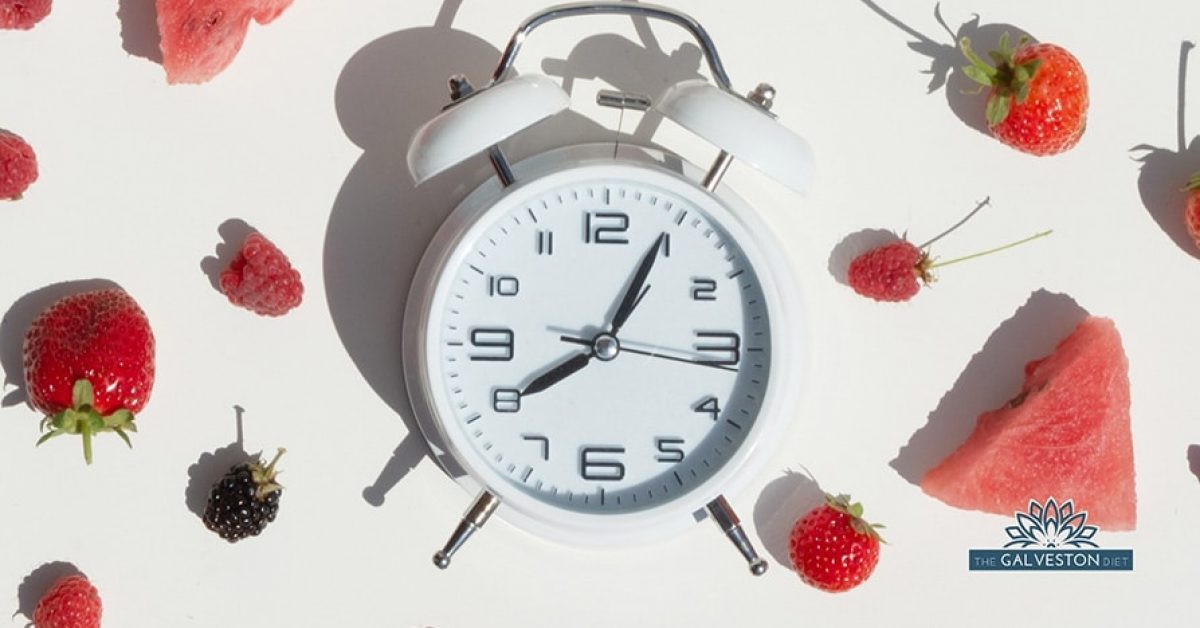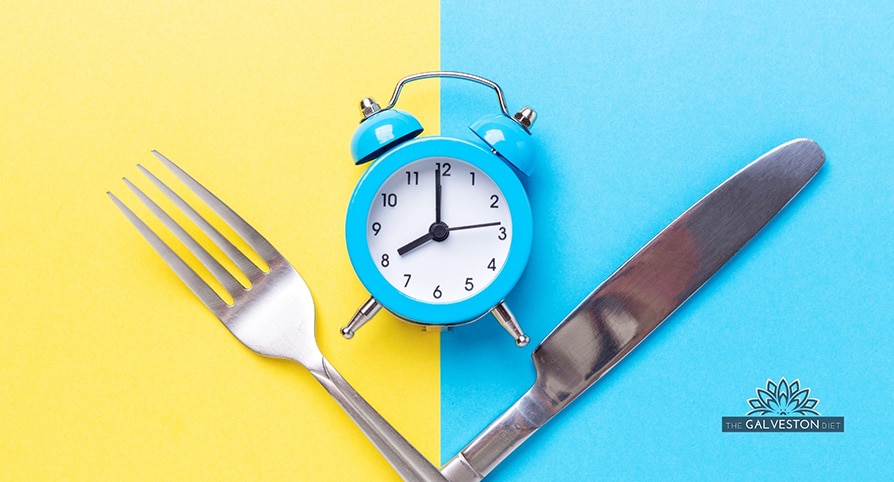I know what you are thinking…It is just NOT practical or doable to fast during the holidays!! But I promise, this can work. If you are new to fasting, it is easier than you think. If you practice intermittent fasting but are hesitant to continue during the holiday season, I promise, you can do it and it is worth it.
Fasting is simply defined as taking periodic breaks from eating. You absolutely can reap the benefits of fasting without depriving yourself. This key truth is especially important as many do not want to feel deprived or extremely restricted during this time of year. There are many different methods of fasting, but my favorite, and one of the most popular, is the 16/8 method. In a 24-hour period, you fast for 16 consecutive hours and then eat for 8 consecutive hours. You personally decide which consecutive 8-hour window makes the most sense for you, your family, and your lifestyle. For me, my eating window is generally noon to 8pm.
During my research for The Galveston Diet, I was absolutely fascinated by the studies on intermittent fasting. I learned that this practice is extremely important in preventing obesity, lowering cardiovascular risk factors, improving insulin resistance, decreasing inflammation, and preserving learning and memory. These are merely some of the many benefits intermittent fasting possesses, all of which promote and encourage healthy aging and longer life.
Why is this research especially relevant during the holiday season? Well, with all of the treats that magically pop up around every corner during the holiday season, fasting helps you to calorically restrict yourself. Allowing yourself to eat in blocks of time, gives you the opportunity to walk into a food filled gathering with the mentality of abundance (I can eat and not worry) rather than restriction (I’m on a diet and can’t eat much). You will gift yourself with the ability to enjoy yourself during the event without feeling guilty. A great study demonstrated that intermittent fasting was just as effective as continuous caloric restriction in women – and improved their biomarkers for disease. Impressive, right?!
In addition, the holidays are a time of high stress and burnout. We often find ourselves in situations out of our routine, staying out later and sacrificing “me time” for “we time.” Fasting can actually help keep your energy levels up during the holidays and other chaotic times of the year when your schedule is packed and you’d rather stay in bed. The reason for this is that when we fast for more than 12 hours, our bodies burn through all of our available sugars for energy. Then, we are forced to burn fat for fuel. The ketone bodies produced by this process actually help us think clearer, problem solve better, and have more energy! I know I benefit from increased mental clarity during this time of year and I bet you would too.
Lastly, too often during the holidays we find ourselves eating lots of heavy, high-sugar, and processed foods. Consumption of these types of foods is actually stressful for the body! But, fasting can improve your ability to adapt to stress by changing the way certain cells and hormones work, meaning you’ll be able to better cope with the with sleep, exercise and dietary changes that often happen during the holidays. Fasting has even been shown to increase resistance against disease and to support the central nervous, digestive and cardiovascular systems.
Make this year different than previous weight gain during the holiday season – I encourage you to try intermittent fasting and check out The Galveston Diet if you are interested in learning more.



